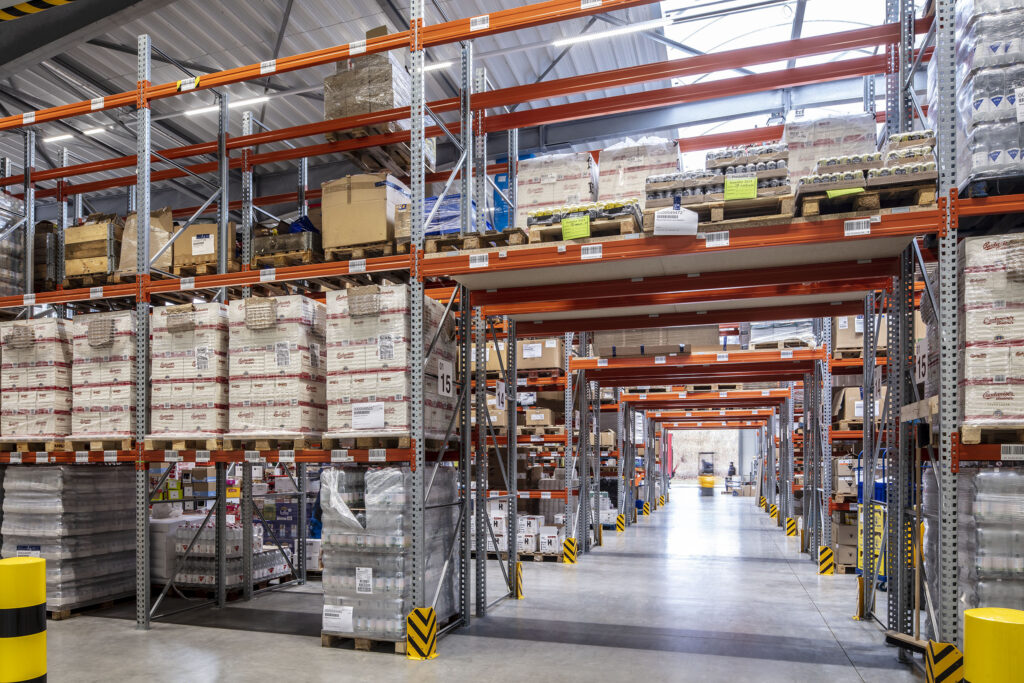Розуміння розширеної відповідальності виробника (EPR)
Розширена відповідальність виробника (РВВ) стає важливою нормативною базою, що впливає на логістику та операції ланцюгів поставок. Основна мета EPR - перекласти фінансову та екологічну відповідальність за відходи упаковки з місцевих органів влади на виробників, імпортерів та постачальників. У міру того, як бізнес намагається впоратися з цими правилами, потреба в розумних логістичних рішеннях стає все більш очевидною.
Зміна підзвітності
ЕПР запроваджує фундаментальну зміну в розподілі відповідальності за відходи між бізнесом. Раніше місцева влада несла більшу частину тягаря поводження з відходами, тепер компанії повинні зайняти проактивну позицію. Це вимагає переоцінки того, як упаковка не лише створюється, але й відстежується та звітується протягом усього її життєвого циклу.
Вплив на навколишнє середовище
EPR являє собою більше, ніж захід з дотримання вимог законодавства; він втілює відданість екологічному управлінню. Компанії заохочуються до розгляду всього життєвого циклу упаковки - від пошуку постачальників і дистрибуції до переробки або повторного використання. Вплив пакувальних відходів є надто значним, щоб його ігнорувати, і це дає зрозуміти, що відповідальність має бути спільною.
Виклики для середнього та малого бізнесу
Великі компанії часто мають необхідні системи, щоб орієнтуватися в цих регуляторних змінах, але це не стосується багатьох малих і середніх підприємств (МСП). Ці підприємства часто стикаються зі складнощами відстеження даних, необхідних для дотримання вимог законодавства про екологічну та соціальну безпеку. Багато хто все ще покладається на застарілі методи, такі як електронні таблиці, які можуть ускладнити процес звітування.
Подолання бар'єру комплаєнсу
Для малих і середніх підприємств реєстрація у схемах комплаєнсу та подання даних про упаковку стали критично важливими. Ті, хто не має налагоджених систем відстеження, повинні або інвестувати в нове програмне забезпечення, або збирати звіти з різних джерел, таких як накладні та рахунки-фактури. На жаль, це не просто чергові витрати; операційне навантаження може створювати значні проблеми.
Ваш час цінний
Коли справа доходить до того, що дотримання вимог EPR - це не лише сплата реєстраційних зборів, а й виділення дорогоцінного часу та ресурсів на створення нових функцій звітності. Відсутність державного керівництва може зробити навігацію по цих вимогах особливо складною для невеликих організацій.
ERP як інструмент для забезпечення комплаєнсу
Компанії, які впровадили ERP (Планування ресурсів підприємства) ERP-системи мають явну перевагу, коли йдеться про дотримання вимог EPR. Правильне ERP-рішення дозволяє компаніям відстежувати товари з моменту їх надходження в компанію, фіксуючи такі важливі деталі, як інформація про постачальників і типи упаковки. Така цілісність даних має вирішальне значення для ефективного дотримання вимог.
Управління даними та звітність
ERP-платформи сприяють підтримці цілісності та точності в управлінні даними. Вони пропонують функції для проведення "перевірки стану даних", що дозволяє компаніям відповідати новим вимогам без значної реконфігурації існуючих систем. Якщо для дотримання вимог EPR потрібні додаткові дані, їх можна легко інтегрувати в ERP-платформу без необхідності починати з нуля.
Стратегії відстеження витрат і ціноутворення
Ще однією помітною перевагою ERP-систем стосовно EPR є покращена прозорість витрат. У міру того, як змінюються вимоги до відповідності, постачальники упаковки можуть перекладати свої витрати на бізнес, що може призвести до викривлення маржинальності. Ефективне рішення ERP дозволяє розподіляти ці витрати між лініями замовлень, сприяючи прийняттю обґрунтованих цінових рішень, зберігаючи при цьому конкурентоспроможність на ринку.
ЕПР та цифрові паспорти продукції
Існує ширша тенденція, що пов'язує EPR з майбутнім впровадженням цифрових паспортів продукції (DPP), які, ймовірно, стануть необхідними згідно з новими правилами ЄС. DPPs покладаються на ефективну простежуваність і можуть спростити процес дотримання вимог, поєднуючи поточні вимоги з майбутніми ініціативами зі сталого розвитку.
Майбутні наслідки для бізнесу
Оскільки EPR продовжує розвиватися, існує ймовірність того, що все більше суб'єктів господарювання будуть втягнуті в цю нормативну базу. Мікробізнес, який наразі не зобов'язаний відповідати вимогам РДЕС, може одного дня опинитися перед необхідністю йти в ногу з цими стандартами сталого розвитку, що робить вкрай важливим для всіх підприємств завчасне налагодження партнерства з постачальниками, які дотримуються цих стандартів.
Уроки попереднього законодавства
Запровадження податку на пластикове пакування (PPT) у 2022 році стало передумовою для ЕПР, заохочуючи до використання сталих матеріалів. Спостереження за змінами в поведінці, спричиненими PPT, може допомогти зрозуміти, як організації можуть краще підготуватися до ОВВ.
Заключні думки
У світі, який все більше регулюється екологічними нормами, потреба в комплексному управлінні даними є першочерговою. ЕОР - це ще один рівень, на який слід звернути увагу фахівцям з логістики та ланцюгів поставок. Це дає можливість удосконалити практики, покращити відносини з постачальниками та узгодити операції з цілями сталого розвитку.
Для логістичного бізнесу адаптація до EPR означає впровадження цифрових рішень, які можуть оптимізувати процеси та підвищити стійкість. Перехід від традиційних методів до сучасних ERP-рішень - це не просто обов'язок, це крок до операційної досконалості.
Оскільки на карту поставлено так багато, компаніям варто розглянути можливість замовлення логістичних перевезень у перевірених постачальників, які розуміють ці мінливі вимоги. На GetTransport.com користувачі можуть ефективно і доступно управляти своїми логістичними потребами, забезпечуючи безперебійну роботу з домашніми та офісними переїздами, прямими поставками вантажів і великими відправленнями. Не потрібно турбуватися про дрібниці - GetTransport.com пропонує надійні та прозорі рішення для всіх транспортних потреб. Замовте вантажоперевезення з GetTransport.com вже сьогодні!

 Навігація по розширеній відповідальності виробника: Роль ERP в логістиці">
Навігація по розширеній відповідальності виробника: Роль ERP в логістиці">